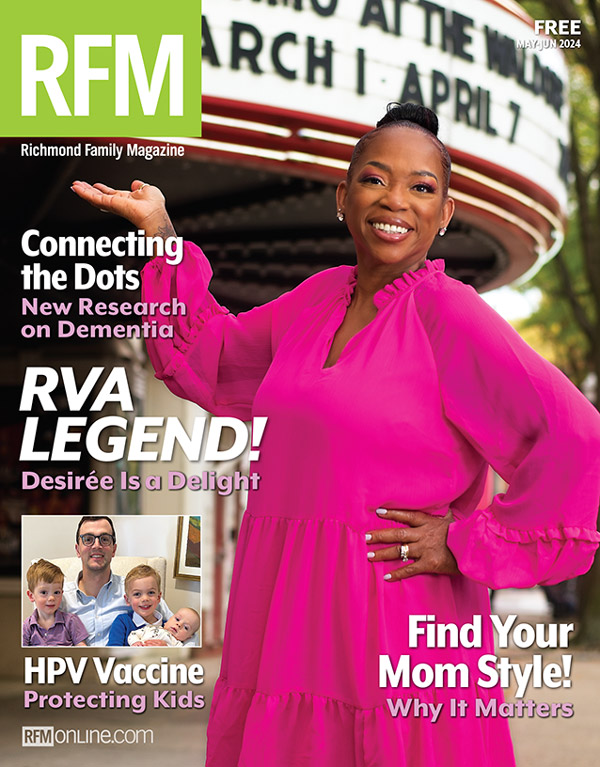Virginia’s Medicaid and Family Access to Medical Insurance Security (FAMIS) programs are crucial to the health and well-being of our families, neighbors, and communities. Yet up to 420,000 Virginians could lose this critical health coverage in the next year following the end of federal COVID-19 pandemic protections. Coverage losses of this magnitude will have lasting, negative impacts, but we can work together now to raise awareness of the changes and mitigate losses.
Medicaid and FAMIS cover nearly 2.2 million Virginians, including 43 percent of children, 32 percent of births, and 59 percent of nursing home residents. In the City of Richmond alone, 91,169 individuals are covered by these programs. That includes 30,762 children, or 67 percent of the city’s youth.
Virginia’s Healthcare Story
Access to healthcare as a child promotes long-term health, academic success, and positive economic outcomes into adulthood. Coverage during and between pregnancies reduces preterm births, low birth weight, maternal mortality, and can help reduce maternal health disparities. Health coverage also prevents medical debt and provides reimbursement to hospitals, safety net providers, and even schools, in some circumstances.
Unfortunately, this progress is now at risk. States, including Virginia, have received additional federal funding for their Medicaid and CHIP programs since March 2020. In return, they agreed to provide continuous coverage to most enrollees by suspending coverage terminations. This protection applied even to those who experienced changes that normally would have made them ineligible, such as an increase in income. States also suspended annual renewals (the process of reviewing current members’ eligibility) during this period. These pandemic-related protections expired on March 31, 2023.
Virginia must now resume annual renewals for all 2.2 million members by February 2024. Officials estimate that 14 to 20 percent of members will lose coverage during this process. However, no one will lose their coverage before their case has been reviewed. The U.S. Dept. of Health and Human Services estimates that 45 percent of members and up to 72 percent of children who lose coverage during this time will do so for administrative reasons, despite remaining eligible. Black and Latino children are particularly at risk.
Working to Keep Kids and Families Protected
The bulk of the increased workload will be conducted by local departments of social services, which are already strained and experiencing an average 15 percent staff vacancy rate. Coverage losses may be worse in localities such as Richmond that are experiencing higher than average staffing shortages. The increased workload will not only likely result in excess administrative Medicaid terminations but also further inhibit the department’s ability to process new Medicaid applications and efficiently administer other family support programs such as SNAP (federal nutrition assistance) and TANF (federal assistance program for families).
There are steps everyone can take now to make sure families in our community have the information they need to stay covered. We must get the word out that renewals are starting and make sure that all Medicaid- and FAMIS-enrolled families have shared their updated contact information with the state, especially if they have moved since 2020. Most communication will be sent via mail, and members will lose coverage if they don’t respond to relevant notices. It is also important to emphasize that all renewals will not happen at one time, but will be spread out over a 12-month period.
When the state initiates a renewal, they will first try to automatically renew the coverage using electronic data sources. If successful, the member or their parent should receive a notice stating that their coverage has been renewed and they don’t need to take any action to stay enrolled. If the coverage cannot be automatically renewed, they will be sent a partially completed renewal form. Individuals should update any incorrect information and complete blank sections. They can attach documents to verify any changes they report on the renewal form. Renewal forms can be completed on paper and returned to the local DSS office, over the phone at 1-855-242-8282, or online at commonhelp.virginia.gov. The state will process this information to determine if the member is still eligible or not.
If an individual or family loses coverage but believes they are still Medicaid-eligible, they can appeal the decision, contact their caseworker for more information about the termination, or reapply. Those who are no longer eligible — due to income increases or other changes — should explore other insurance options immediately.
The end of federal COVID-19 protections poses a logistical challenge that is likely to result in coverage losses for thousands of eligible children and families. Helping families access the resources they need to stay happy and healthy will strengthen our communities and maintain the progress we have made in extending health coverage in Virginia.
How to learn more about Medicaid renewal:
Virginians can directly contact Medicaid and Marketplace agencies on their own, but free and unbiased support is available through VPLC’s Enroll Virginia program. Enroll Virginia navigators can help with Medicaid applications and renewals, or with the transition to other health coverage. Individuals who need Medicare assistance should reach out to their local Virginia Insurance Counseling and Assistance Program (VICAP) office.
Enroll Virginia: enrollva.org or 1-888-392-5132
VICAP: vda.virginia.gov/vicap.htm or 1-800-552-3402







